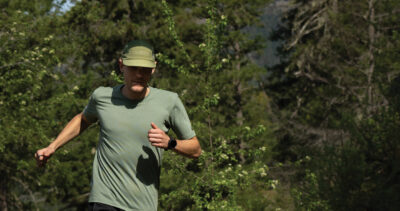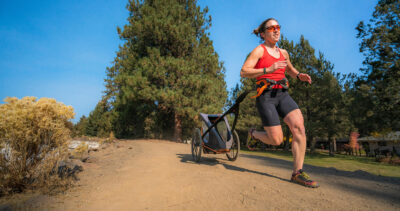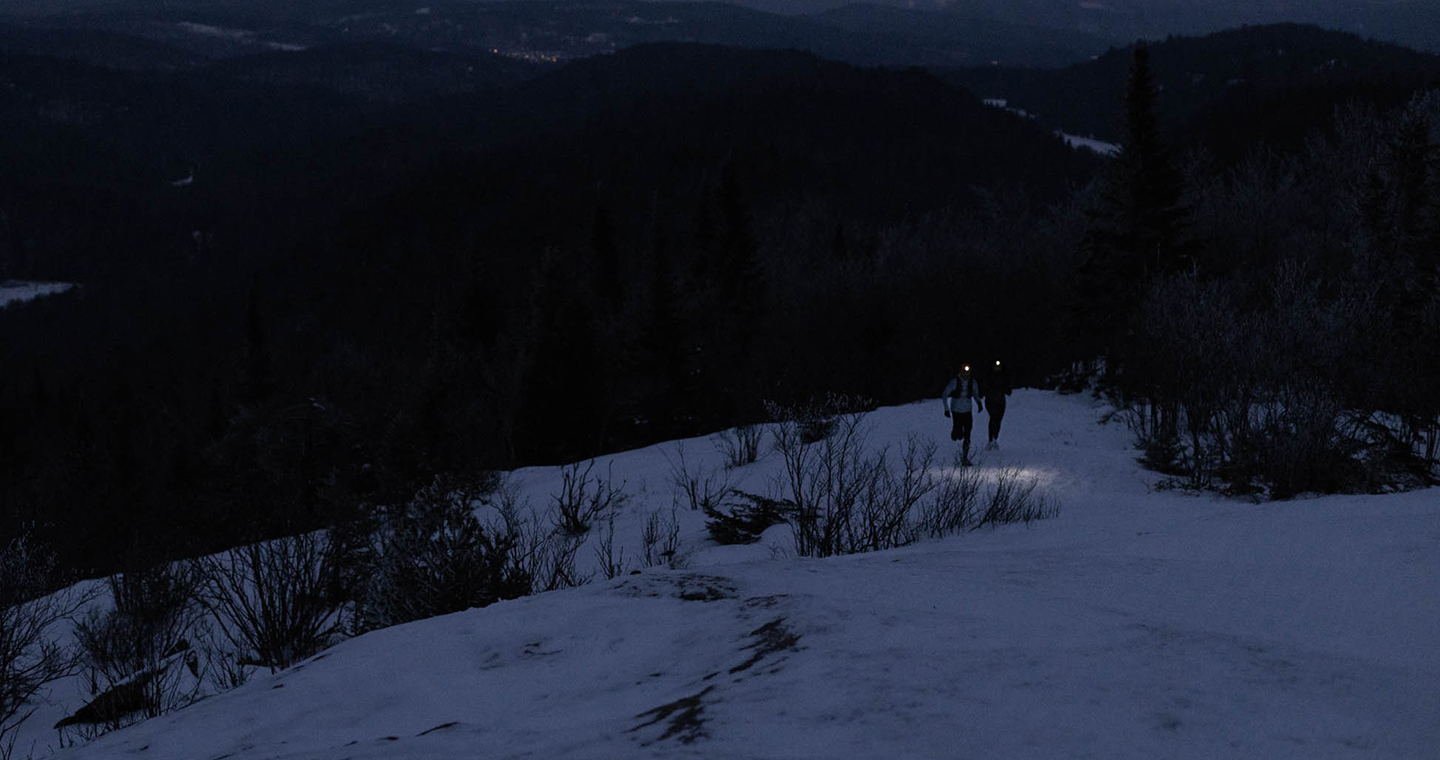
in the present moment
in the present moment

words x
danielle mustarde
photos x
alexandra côté-durrer
I first meet Alexandra Côté-Durrer over Zoom on a Thursday afternoon. After connecting, giving a quick wave and briefly fumbling with my headphones, we’re up and running and as I turn back to my screen I’m greeted by an eager smile. Framed on both sides by thick white snow visible through the wood-framed windows behind her I’m abruptly reminded that, in Quebec at least, it’s the middle of winter (a fact not so immediately apparent in an uncannily warm London, England).
Alexandra, or Alex as she introduces herself, is 27 years old and grew up an only child in a single-parent household in “the middle of nowhere” otherwise known as Port Elgin, Ontario. Today, she wears a baggy, off-white sweatshirt and a beige-coloured beanie over long mousey-brown hair (which continues southwards offscreen). She appears at ease and is keen to share her story: a modern-day Bildungsroman of both coming to recognise and learning to live with multiple mental illnesses––and a story in which trail running plays a significant part.
A professional adventure sports photographer, Alex has come a long way… From an anxiety-riddled childhood, her multiple diagnoses and time spent in hospital “on suicide watch”, to being a successful business owner, recent running club founder (@brainrunclub) and an advocate for the benefits of trail running for those who suffer from mental illness (and those who don’t) as a way to live a fuller, more independent and peaceful life.
This is Alex’s story, in her own words.
A professional adventure sports photographer, Alex has come a long way… From an anxiety-riddled childhood, her multiple diagnoses and time spent in hospital “on suicide watch”, to being a successful business owner, recent running club founder (@brainrunclub) and an advocate for the benefits of trail running for those who suffer from mental illness (and those who don’t) as a way to live a fuller, more independent and peaceful life.
This is Alex’s story, in her own words.
This interview has been edited and condensed.
I grew up in Ontario. I was an only child and I had issues related to my mental health. It was really hard for me to understand––especially as a kid growing up in a space where the adults around you don’t know very much about mental health, and then there’s the huge stigma too.
I grew up in Ontario. I was an only child and I had issues related to my mental health. It was really hard for me to understand––especially as a kid growing up in a space where the adults around you don’t know very much about mental health, and then there’s the huge stigma too.
I couldn’t really understand why I was having the emotions I had. I didn’t understand why I was never happy.
I’d ask myself, ‘Why am I always anxious? Why am I scared to go out in public?’ Why this and that and, actually, it wasn’t until my late teens that I was finally diagnosed with both generalised and social anxiety. Those were my first two diagnoses. More would follow.
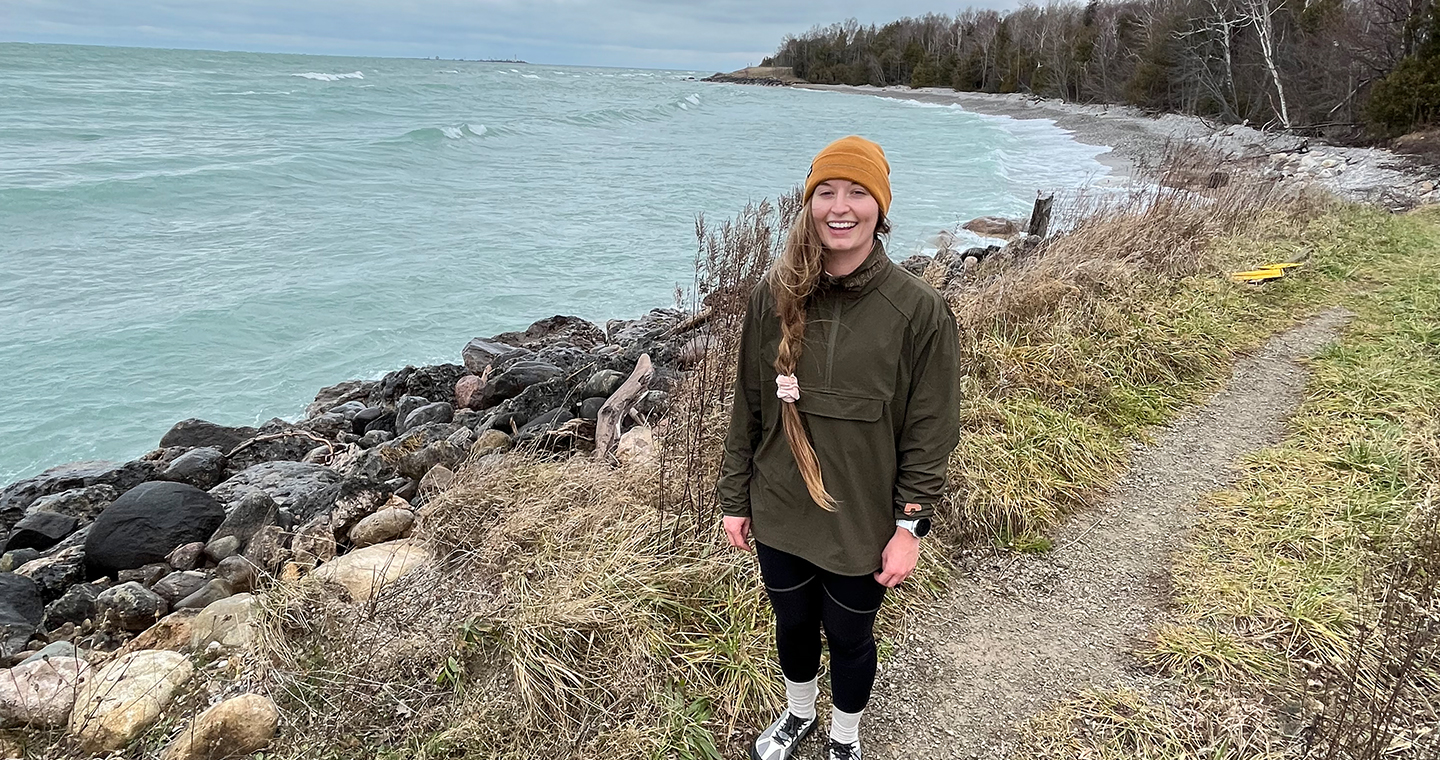
Generalised anxiety, for me, is like having anxiety about anything––and it’s not just being stressed. It’s being genuinely scared. I could be about to finish a book and not read the last chapter and that could give me anxiety or even a panic attack because, ‘Oh my god, I didn’t finish the last chapter.’ Social anxiety, on the other hand, is everything that has to do with social interaction. For me, going into areas where there are a lot of people, like to the supermarket, can become very overwhelming. I go into this mind space where I don’t really think or function well.
But once we had those diagnoses, I finally began to understand why I’d do things a certain way and that really opened me up––though the confusion never completely went away. I was still trying to figure out why I couldn’t feel happiness? I’d often ask myself, ‘What is happiness?’ And that’s when I was diagnosed with chronic depression. This is a condition that you can be born with; it’s also something that can develop later on in life. We’ve concluded that it was probably something that I was born with.
About six years ago, following a traumatic experience, I was also diagnosed with PTSD. To me, PTSD is the feeling of always being anxious, but at times the emotions are so intense that my brain flashes back to traumas I experienced earlier in my life. This can trigger a fight or flight response where, sometimes I’ll freeze and sometimes my body experiences physical convulsions. Every once in a while these horror movie-like ‘scares’ leave me feeling terrorised.
Still, as difficult a journey as it’s been, ever since being diagnosed with multiple mental illnesses, I understood something of myself. I could finally put something into words and be like, ‘Okay, now I know what this is, what are the tools I can use to get better?’ Running, for me, has been a huge help.
But once we had those diagnoses, I finally began to understand why I’d do things a certain way and that really opened me up––though the confusion never completely went away. I was still trying to figure out why I couldn’t feel happiness? I’d often ask myself, ‘What is happiness?’ And that’s when I was diagnosed with chronic depression. This is a condition that you can be born with; it’s also something that can develop later on in life. We’ve concluded that it was probably something that I was born with.
About six years ago, following a traumatic experience, I was also diagnosed with PTSD. To me, PTSD is the feeling of always being anxious, but at times the emotions are so intense that my brain flashes back to traumas I experienced earlier in my life. This can trigger a fight or flight response where, sometimes I’ll freeze and sometimes my body experiences physical convulsions. Every once in a while these horror movie-like ‘scares’ leave me feeling terrorised.
Still, as difficult a journey as it’s been, ever since being diagnosed with multiple mental illnesses, I understood something of myself. I could finally put something into words and be like, ‘Okay, now I know what this is, what are the tools I can use to get better?’ Running, for me, has been a huge help.
In my early 20s, I was admitted to a mental health hospital which gave me access to services aimed at helping me to cope with my diagnoses. While there, I was in a therapy group with other people and, on one particular occasion, they were talking about how running is the “best form of therapy”––fast therapy––for people living with all kinds of mental illness. At that time in my life, I was scared just to go outside. I couldn’t walk around the block in the city because there were too many people there.
I remember my doctor asking me, because he knew I loved to move and that I needed to be doing stuff, he said, ‘Alex, have you considered running? And, though I’d been running on and off since I was a kid, he told me, ‘You know, even if you just get out for five minutes it will make a difference.’ And that’s when I decided that I was committed to running no matter what. That’s when it clicked in my head. And so, after I left hospital, I started going out with run groups and, just the fact that I was running so fast that I couldn’t really see the people passing by me really helped. It made me more resilient towards being in the city. I even began to appreciate it.
And then there’s nature. I remember when I first tried trail running. I’d bought a pair of shoes from a little coffee shop-come-sports store my (now) friends in Quebec own. I was on a beginner trail with my dog at the time. He was 11 or 12 years old and running behind me and I didn’t have a watch or any kind of GPS. I remember just running and I loved it but I was like, ‘God, I probably ran like 10 km’ and then I remember looking at the trail map and it was only three. And I was like, really? That’s when I realised, ‘Okay, this is really fun. But it’s also really hard.’ But I liked that it was really hard because it was a different challenge than the one I normally have––fighting with the thoughts in my brain. It gave me a sense of accomplishment; of being able to come out and have 45 minutes without thinking about my anxiety. It was definitely in those moments where I realised the significance of trail running to my life.
I remember my doctor asking me, because he knew I loved to move and that I needed to be doing stuff, he said, ‘Alex, have you considered running? And, though I’d been running on and off since I was a kid, he told me, ‘You know, even if you just get out for five minutes it will make a difference.’ And that’s when I decided that I was committed to running no matter what. That’s when it clicked in my head. And so, after I left hospital, I started going out with run groups and, just the fact that I was running so fast that I couldn’t really see the people passing by me really helped. It made me more resilient towards being in the city. I even began to appreciate it.
And then there’s nature. I remember when I first tried trail running. I’d bought a pair of shoes from a little coffee shop-come-sports store my (now) friends in Quebec own. I was on a beginner trail with my dog at the time. He was 11 or 12 years old and running behind me and I didn’t have a watch or any kind of GPS. I remember just running and I loved it but I was like, ‘God, I probably ran like 10 km’ and then I remember looking at the trail map and it was only three. And I was like, really? That’s when I realised, ‘Okay, this is really fun. But it’s also really hard.’ But I liked that it was really hard because it was a different challenge than the one I normally have––fighting with the thoughts in my brain. It gave me a sense of accomplishment; of being able to come out and have 45 minutes without thinking about my anxiety. It was definitely in those moments where I realised the significance of trail running to my life.
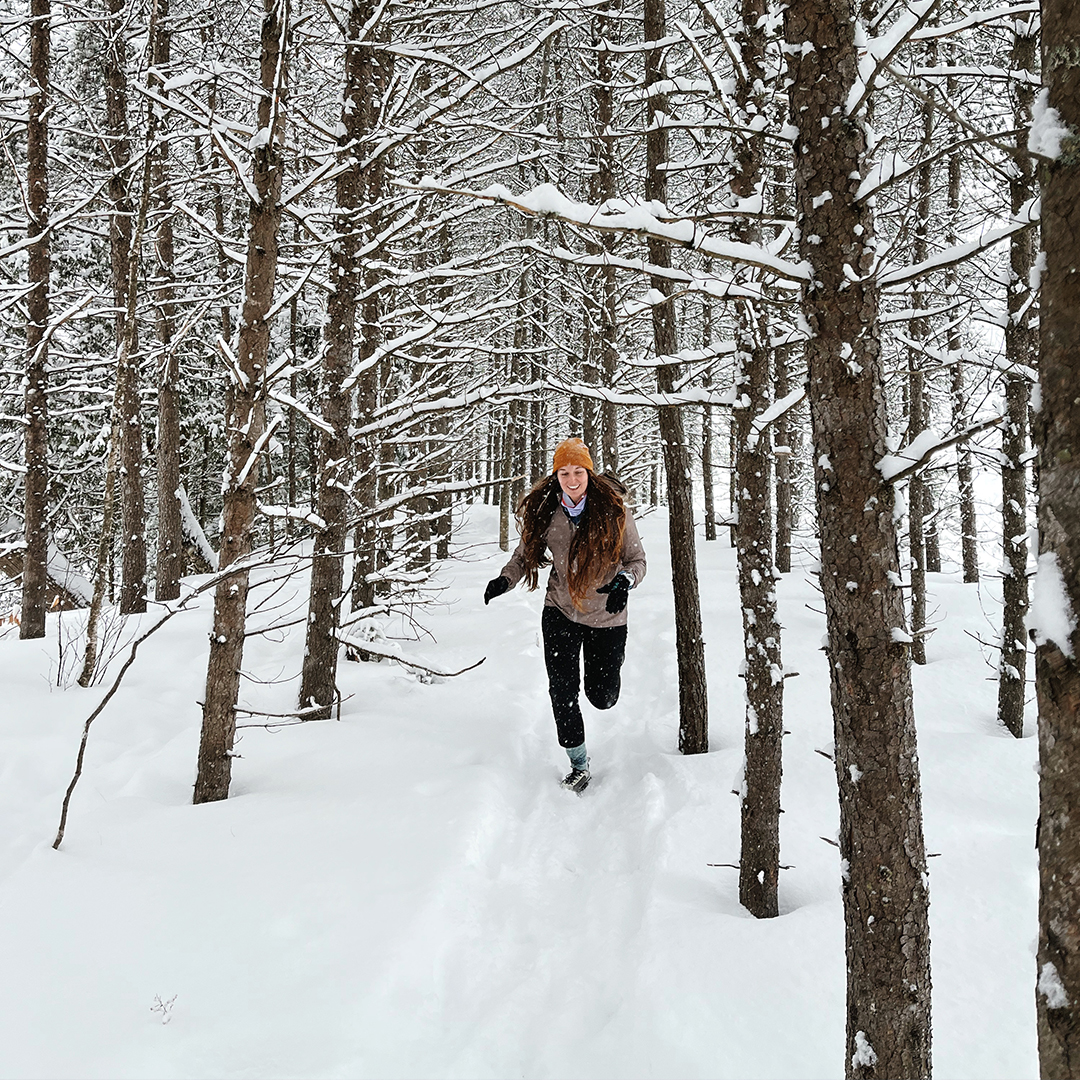
These days, it’s my sport.
it’s trail running that’s enabled me to find peace within my anxiety.
It’s funny, because a lot of people tell me (because I’m now able to run ultras): ‘It’s funny that you don’t get anxious when you run an ultra––you’re all alone in the woods!’ But actually, I love it. Because when I’m trail running, I don’t think about my anxiety. It’s one of the things that I can do where I’m thinking about other places in my body; like feeling the pain in my legs. It takes my anxiety away and that’s beautiful. Trail running is a beautiful sport.
I remember in therapy, what really worked for me was visual meditation, and so I now use also visual meditation in my running. I can look where the trail’s leading and I can just focus on my breathing and movement. That and just getting to the top of the mountain and taking five minutes to look at the view while focusing on my breathing. And, whether I’m having a bad run or a good run, I always feel that moment of clarity––of just enjoying what’s happening and how I’m feeling and honestly, that is such a powerful feeling. For my whole life I’ve had trouble separating the negative thoughts in my brain from myself so, when I’m running, to just feel completely clear? It’s amazing.
I remember in therapy, what really worked for me was visual meditation, and so I now use also visual meditation in my running. I can look where the trail’s leading and I can just focus on my breathing and movement. That and just getting to the top of the mountain and taking five minutes to look at the view while focusing on my breathing. And, whether I’m having a bad run or a good run, I always feel that moment of clarity––of just enjoying what’s happening and how I’m feeling and honestly, that is such a powerful feeling. For my whole life I’ve had trouble separating the negative thoughts in my brain from myself so, when I’m running, to just feel completely clear? It’s amazing.
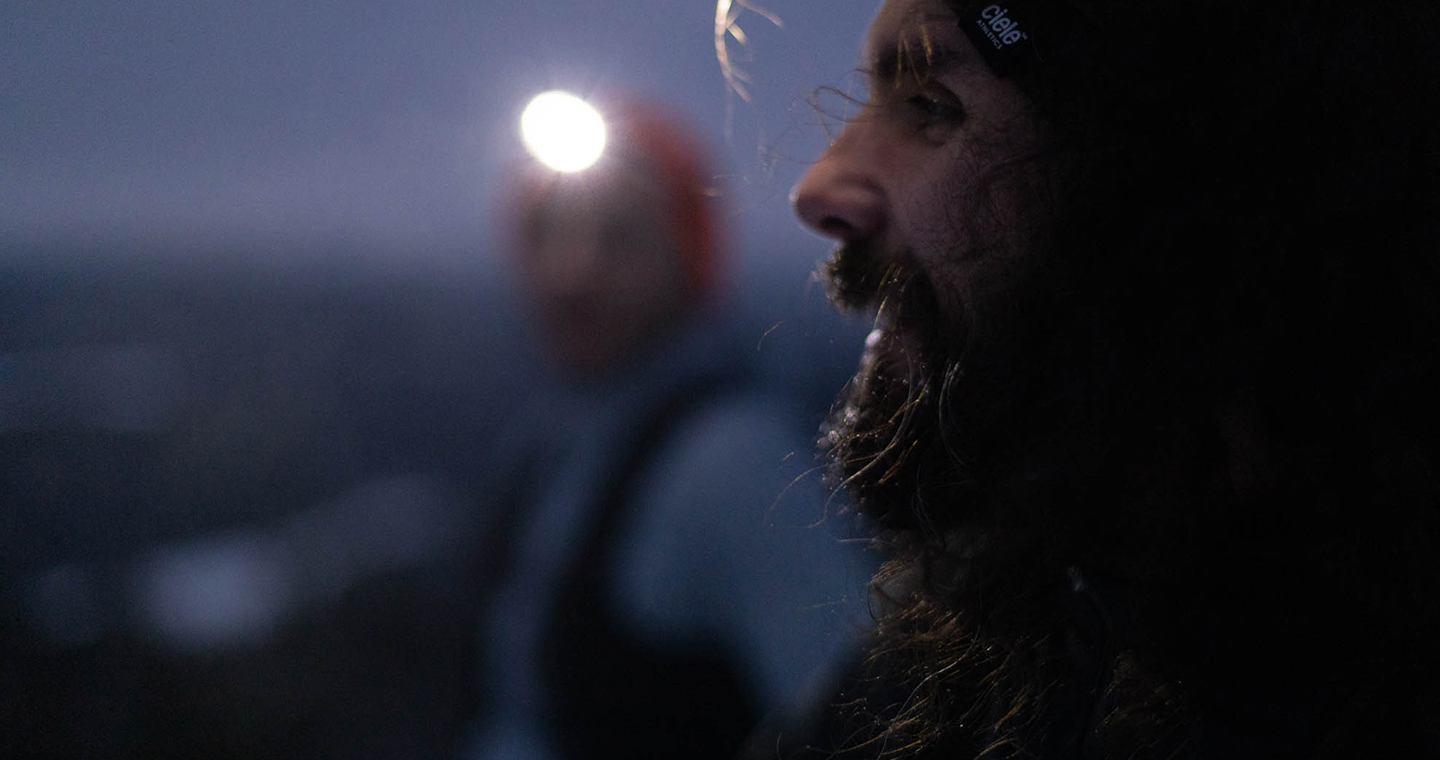
Running is so inclusive as well. I don’t have a lot of money––I’ve been independent since I was around 16 and a lot of my money has to go into therapy and medication––and so, I needed to figure out a physical way to get by which was accessible. With running, I can get a pair of running shoes and go run. Even if I don’t have a pair of shoes, I could run bare feet if I really wanted to. It’s on the trails that I’ve learned to cope.
Every time I go running, it’s a different experience. There are times when I go running and I’ll do my usual five to seven kilometre loop because I’m feeling tired. But it’s always the same kind of feeling.
Every time I go running, it’s a different experience. There are times when I go running and I’ll do my usual five to seven kilometre loop because I’m feeling tired. But it’s always the same kind of feeling.
I just feel like there’s nothing; like everything flushes out.
I’m focused on my movement but I’m also looking around me and listening to nature or to my dog, Alo, running alongside me. When I run, I’m in the present moment.
Though today I’m still learning how to enjoy life––not knowing if tomorrow will be a good or a bad day is always hardest––when people ask me if it gets better, I usually tell them that, yes, it does. The symptoms and pain may always be there, but you learn to be resilient and with time the heavy weight becomes a little more bearable. That’s what running has done for me. That’s how I’ve been coping and, more recently, it’s also where I’ve found my passion.
Earlier this year, I started an initiative called Brain Run Club, a club-come-social movement created to raise awareness through running. Because I am a runner, and because I love running, I know that through the sport we can connect, we can inspire, and we can let go of our stresses and anxieties together. To me, it’s taking my love of running, of nature and of advocating for better mental health awareness and bringing it all together.
I believe we’re part of a generation where it’s the perfect time to really talk about and educate people on mental health. For me now, my goal is to connect with runners all across North America, and to finally help break the stigma surrounding mental health once and for all.
For Canadian readers, please visit the Canadian Mental Health Association to find a local mental health helpline/resource.
Follow Alex. Find out more about Brain Run Club, Quebec, @brainrunclub.
Earlier this year, I started an initiative called Brain Run Club, a club-come-social movement created to raise awareness through running. Because I am a runner, and because I love running, I know that through the sport we can connect, we can inspire, and we can let go of our stresses and anxieties together. To me, it’s taking my love of running, of nature and of advocating for better mental health awareness and bringing it all together.
I believe we’re part of a generation where it’s the perfect time to really talk about and educate people on mental health. For me now, my goal is to connect with runners all across North America, and to finally help break the stigma surrounding mental health once and for all.
For Canadian readers, please visit the Canadian Mental Health Association to find a local mental health helpline/resource.
Follow Alex. Find out more about Brain Run Club, Quebec, @brainrunclub.
more articles




